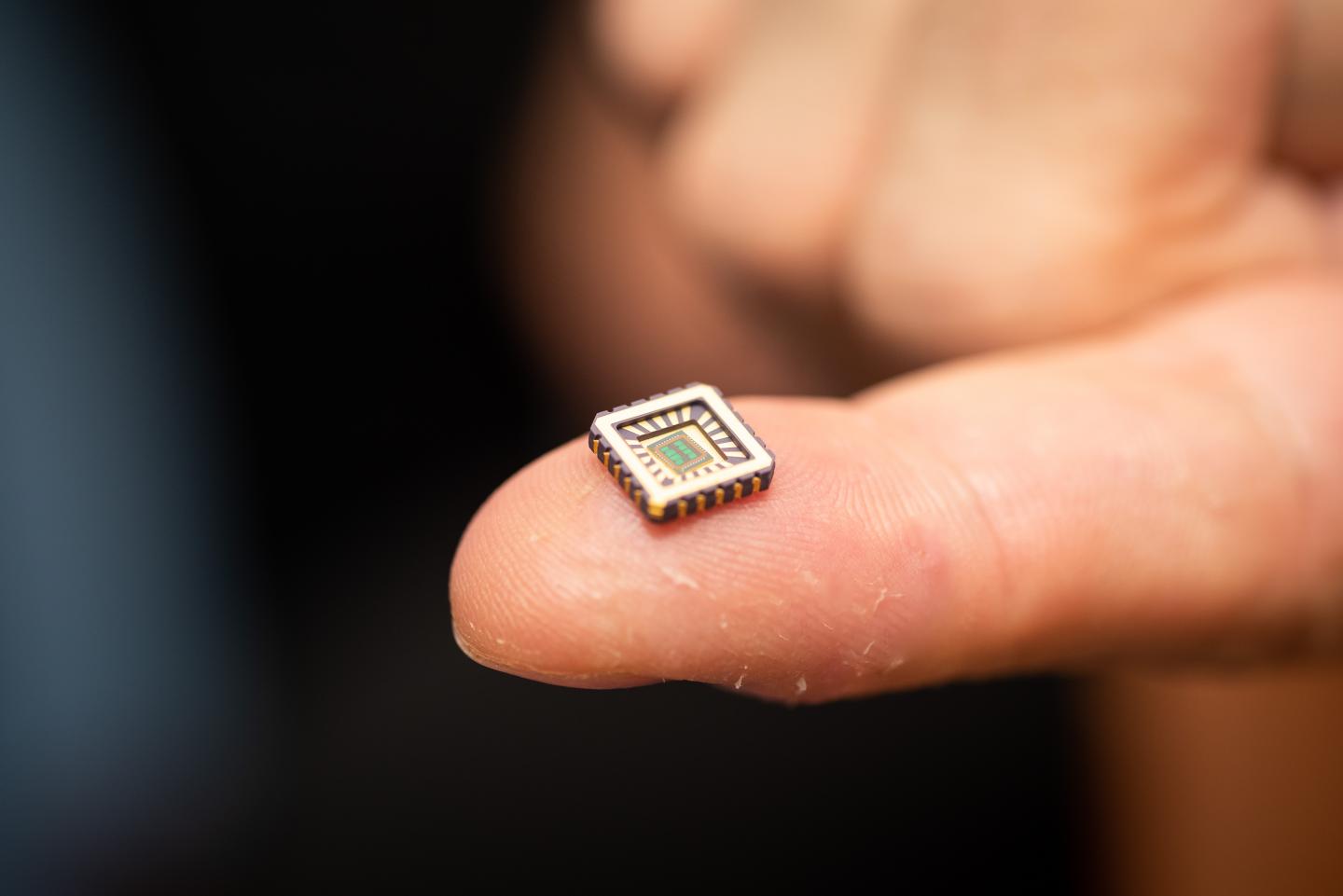December 4, 2019 -- Scientists from the University of Bath have achieved a first-of-its-kind artificial neuron on a silicon chip that behaves like a real biological neuron. The technology, published on December 3 in Nature Communications, is intended to cure chronic diseases, such as heart failure or Alzheimer's disease.
Researchers are seeking to build quantitative computational models and neuromorphic devices that replicate the exact response of a biological neuron. There is also a push for implantable bioelectronics to treat chronic diseases utilizing solid-state devices that accurately mimic bio-circuits. However, difficulties with accurately measuring microscopic parameters and non-linear ionic conductance have been severe limitations to the development of these theoretical and clinically relevant tools.

"Until now neurons have been like black boxes, but we have managed to open the black box and peer inside. Our work is paradigm changing because it provides a robust method to reproduce the electrical properties of real neurons in minute detail," explains Alain Nogaret, from the University of Bath Department of Physics.
The research team designed artificial neurons that respond to electrical signals from the nervous system and need only one billionth of the power of a microprocess. This makes them ideal for use in medical implants and other bio-electric devices. "Our neurons only need 140 nanoWatts of power." Says Nogaret. "This makes the neurons well suited for bio-electronic implants to treat chronic diseases."
To design this product, the team successful modeled ion channels that describes how neurons respond to electrical stimuli. Using non-linear modeling, they accurately predicted the complete dynamics of hippocampal neurons and respiratory neurons from rats and tested them under a range of stimuli.
"Our approach combines several breakthroughs," adds Nogaret. "We can very accurately estimate the precise parameters that control any neurons behavior with high certainty. We have created physical models of the hardware and demonstrated its ability to successfully mimic the behavior of real living neurons. Our third breakthrough is the versatility of our model which allows for the inclusion of different types and functions of a range of complex mammalian neurons."
Case study: heart failure
These artificial neurons could help repair diseased bio-circuits by replicating their healthy function and adequately responding to the biological feed loop in vivo to restore normal function. In heart failure for example, loss of coupling in the brain and nervous system, results in incorrect signaling to the heart, and heart malfunction. A device could be implanted in the brain which adapts to the body's biofeedback system and offer a much-needed therapy. "We're developing smart pacemakers that won't just stimulate the heart to pump at a steady rate but use these neurons to respond in real time to demands placed on the heart - which is what happens naturally in a healthy heart," says Nogaret. "Other possible applications could be in the treatment of conditions like Alzheimer's and neuronal degenerative diseases more generally."
"This work opens new horizons for neuromorphic chip design thanks to its unique approach to identifying crucial analog circuit parameters," said Giacomo Indiveri, co-author from the University of Zurich and ETF Zurich.
Do you have a unique perspective on your research related to nanotechnology or biophysics? Contact the editor today to learn more.
Copyright © 2019 scienceboard.net


